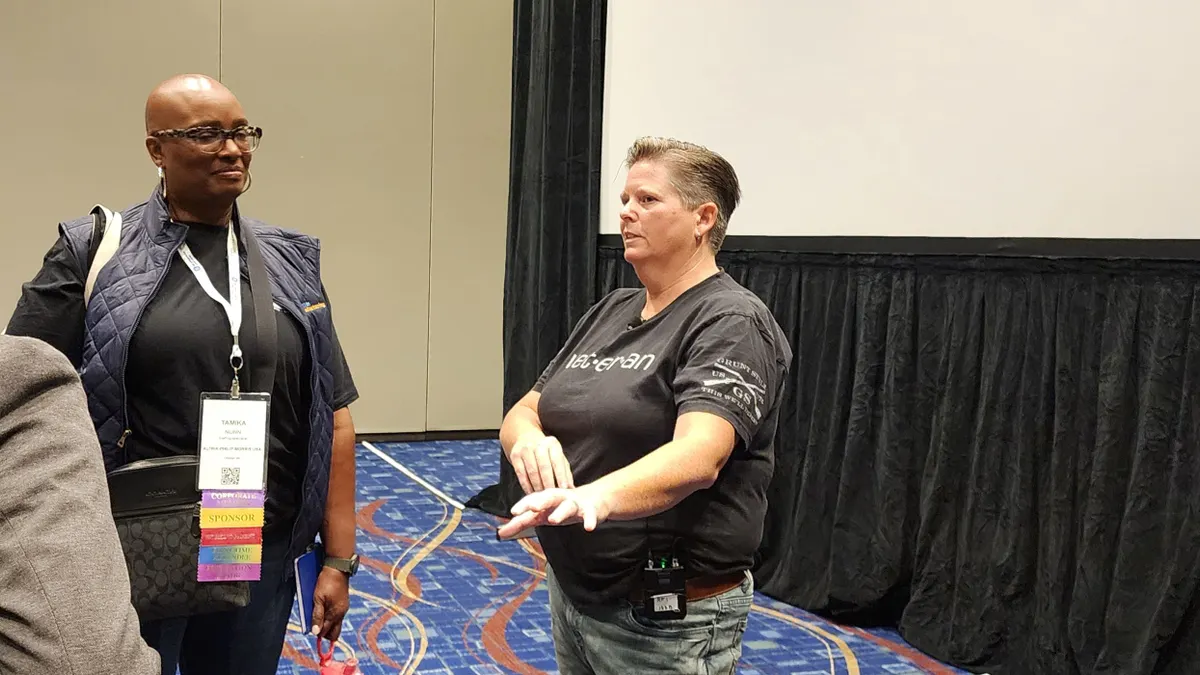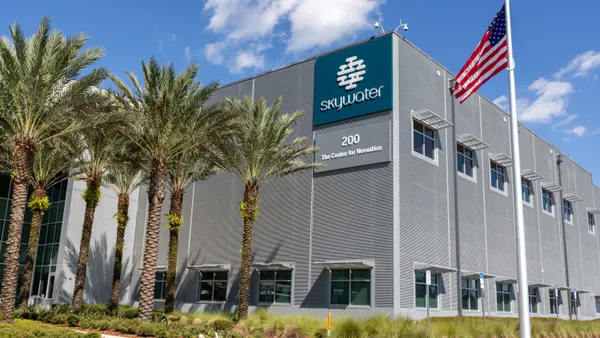Pella deployed Salesforce Field Service to support a digital transformation that included integration of new communication channels, support for new and growing lines of business, and automation of key customer-related tasks and processes. Key benefits include increased productivity, greater visibility, improved technology management, and reduced risk.
In 1925, Pete Kuyper made his first investment in window technology innovation, the Rolscreen window screen that rolled up and down like a shade. Today, Pella designs and manufactures windows and doors for both residential and commercial applications and holds more than 150 process and design patents. Headquartered in Pella, lowa, the company employs more than 10,000 people, with 18 manufacturing locations and more than 200 showrooms across the United States.
The story
Pella has expanded over the past 20 years from selling retail installations directly to homeowners to selling trade and commercial installations to builders, adding a greater level of complexity to its business. However, Pella’s original systems were built for retail sales (and phone and fax communications). To support the new business, Pella’s distributors had developed a patchwork of other applications and processes to manage its increasingly complex project schedules and customer demands – giving Pella limited visibility.
At the same time, like many other companies depending on skilled labor, Pella found that many of its installers and installation coordinators were retiring. Skilled installers were becoming a scarce resource, and Pella needed to both increase the efficiency of its independent contractors and installers and be easier and more predictable to do business with. Pella also needed greater visibility into its business from scheduling to installation, and the ability to more effectively manage digital paper trails to ensure both customer satisfaction and regulatory compliance.
As Pella’s management team plans for the company’s 100™ anniversary, it tasked itself with looking at what the future Pella branch should look like. Pella had adopted Salesforce starting with Sales Cloud in 2020, leading its CIO to look at how a common connected platform could create a unified user experience and greater transparency and visibility. The solution needed to be easy to adopt and use by many distributors and installers, many of whom were not Pella employees, and flexible enough to support the different best practices some distributors had adopted.
After a competitive process, Pella chose Salesforce Field Service because the team believed that the Salesforce platform and its current functionality were able to support its complex service needs as well as be flexible enough to support its future growth. Working with Everge, a Salesforce partner, the Pella team began scoping the project in late December 2021. Pella started rolling the new solution out to branches in May 2022, using a combination of in-person, recorded, and Web training to help distributors adopt the new application.
Business impact
Moving to one common platform to support its extended family of installers and distributors has enabled Pella to more effectively serve its end customers while driving greater visibility, efficiency, and cost savings across its ecosystem. Key benefits of its move to Salesforce Field Service include:
- Increased productivity. Greater automation and data visibility have enabled Pella staff to reduce the time they spend executing key processes, such as permitting, scheduling, and responding to customers’ update requests, freeing up time to focus on more personalized installer and customer service.
- Improved technology management. Retiring Pella’s primary support system saved it more than $1 million in annual licensing costs alone. Over time, the company will eliminate more than 30 applications deployed in branches because their capabilities will be available in the Salesforce solution, reducing IT costs for individual branches and enabling Pella to ensure consistent reliability and cybersecurity - particularly important when dealing with detailed information about customers’ homes.
- Reduced and avoided staff. Moving to Salesforce enabled Pella to redeploy the IT staff devoted to supporting the previous on-premise application, and avoid additional hires that would have been needed to deliver the same level of visibility into data that is provided automatically in the new application.
- Increased profits. Because Pella has automated key components of both its residential and commercial businesses, its installers and internal staff can focus on developing new growth opportunities, such as servicing highly customized products.

- Reduced risk. A common and consistent way to bid, install, and track projects ensures Pella and its extended network are meeting Occupational Safety and Health Administration (OSHA), Environmental Protection Agency (EPA), and other national, state, and local regulatory requirements - and can easily produce the relevant records if needed.
What we learned
Pella found that taking the time to understand how its different distributors and installers were finding and engaging with customers and delivering completed projects enabled it to build one system that could reflect not just Pella and its customers’ needs but its partners’ different needs as well. Pella learned a lot about its individual distributors’ businesses in the planning and scoping process for this project. It has also learned more as it has rolled out the first phase of its Salesforce Field Service project, and is shifting away from a project approach to a more agile one, making more incremental changes in the application as it learns from how users take advantage of it.

Beyond the numbers
The benefits quantified in this case study represent the early benefits achieved by Pella and its network of distributors and installers. A key part of Pella’s strategy was making itself into a company that was easier to do business with. Extending the Field Service capabilities to its partners has enabled those partners to have greater visibility and productivity as well. As Pella continues its Field Service evolution, the company and its partners will achieve greater benefits as they retire more legacy applications and provide the entire Pella ecosystem with a single view of all customer interactions.
Valoir provides research and advisory services to leaders with a focus on the value of people and technology. Analyzing people apps, user adoption, and productivity, Valoir combines primary research and unique insights to help clients understand their strengths and execute strategies that support their goals and values. For more information, contact Valoir at www.Valoir.com or 1-617-515-3699.










